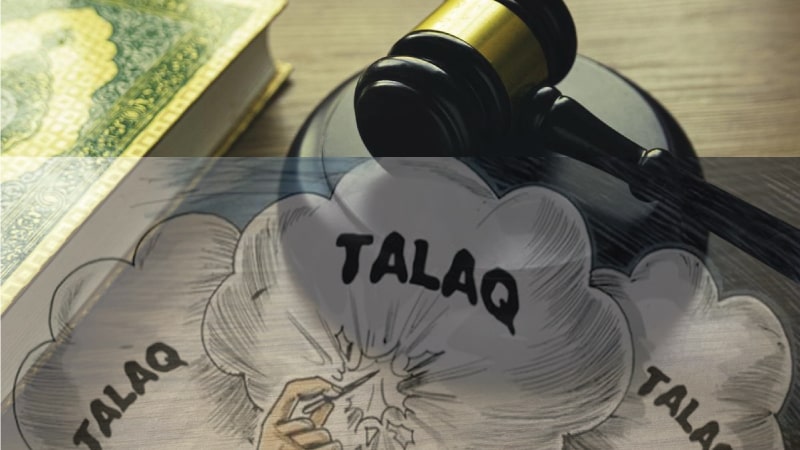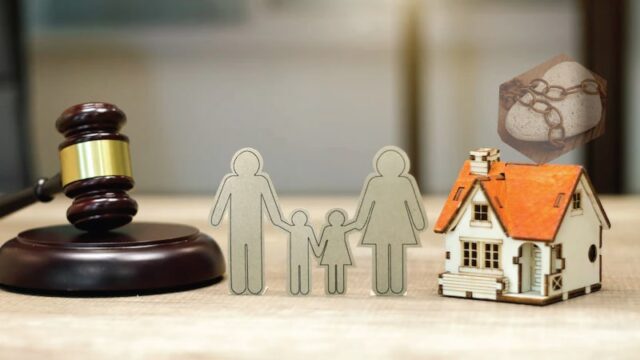Question
Does the Talaq occur when a man utters it to his wife three times in a single sitting? Kindly explain in the light of Qur’an and Sunnah.
Answer
- The issue of divorce is very sensitive but we deal with it in very careless manner. To utter Talaq thrice at once due to small conflict is very common among us even though it was very much disliked by the Messenger of Allah (sallallahu ‘alaihi wa sallam). He declared such a way of giving divorce as a mockery of the religion. [Sunan Nasai, book of Talaq, 343]
However, in the light of Qur’an and the Sunnah the three Talaq uttered in a sitting is counted as a single reversible (Raja’i) Talaq if the Talaq is being uttered during the first or the second occasion. The evidences for this are as follows:
- Ibn ‘Abbas, may Allah be pleased with him, narrates that during the time of Messenger of Allah (sallallahu ‘alaihi wa sallam), the time of the caliphate of Sayyiduna Abu Bakr (may Allah be pleased with him) and in the early two years of the caliphate of Sayyiduna ‘Umar (may Allah be pleased with him) the uttered three Talaq were considered as one Talaq. But because of excess in the cases of such divorce ‘Umar (may Allah be pleased with him) said “People have been hasty in a matter in which Allah gave ease for them, therefore it shall be better if I enforce it.” Then he enforced it. [Sahih Muslim, Kitab al-Talaq, 1472]
However, this act of ‘Umar was from the discretionary and administrative act and this is also accepted by several Hanafi scholars. (See: Jami’ al-Rumuz, Kitab al-Talaq; and Hashiya Tahtawi ‘ala ad-Durr al-Mukhtar)
- Sayyiduna Ibn ‘Abbas, may Allah be pleased with him, says: Sayyiduna Rukana (may Allah be pleased with him) gave divorce to her wife thrice in a single sitting. But then he regretted and so the Prophet (sallallahu ‘alaihi wa sallam) asked him, ‘How you divorced her?’ He said, ‘Three times.’ The Prophet (sallallahu ‘alaihi wa sallam) then aske, ‘Did you divorce her thrice in a single sitting?’ He answered, ‘Yes.’ Then the Prophet (sallallahu ‘alaihi wa sallam) said, ‘Only one divorce has occurred. If you wish to take her back then you can do so.’ According to Ibn’Abbas, the narrator of this hadith, he took her back and settled with her. (Musnad Ahmad 4/123, Ahmad Shakir Ed.)
Hafiz Ibn Hajar, may Allah have mercy on him, says regardin this narration:
هذا الحدیث نص فی المسئلة لایقبل التأویل
“This narration is a decisive proof on the matter of threefold divorce which cannot be interpreted in any other way.” (Fath al-Bari 9/362)
- Some of the Hanafi scholars, by relying on evidences, also give Fatwa based on these narrations. These scholars include Maulana Pir Karam Shah, Maulana ‘Abdul Haleem Qasimi, Maulana Husain Ali Waan Bhachran, Maulana Ahmadur Rahman Islamabad and Professor Muhammad Akram Wark. The details of their Fatawa can be seen in the book by the title “Aik Majlis me teen Talaq”. Therefore, in the light all these facts it is possible for a prideful Muslim, if he had give threefold divorce in one sitting, to take his wife back within the ‘Iddah period. And even if the ‘Iddah period has completed then also he can do Ruju’ by performing the marriage again. This is the ruling of Qur’an and Hadith, and besides that in our currently implemented personal law and in many other Islamic countries this is the same Fatwa given on the matter.
- It is apparent from the inappropriate act of giving triple Talaq in one sitting that the questioner has no control over his temper. We would like to request you to find out the cause for losing control in the condition of anger, sadness or happiness. Be punctual with prayer, fasting, remembrance of Allah and the recitation of the Qur’an. Keep giving charity from time to time and deal with your relatives in a good way. Hopefully, with these good acts Allah will resolve all your problems and difficulties. We ask Allah to bless your family members with long life full of happiness and obedience to Allah. Aameen.
Noble Muftis
His excellence Shaykh Abu Muhammad AbdusSattar Hammad (President of the Lajnah)
His excellence Shaykh Abdul Haleem Bilal (may Allah preserve him)
His excellence Shaykh Javed Iqbal Sialkoti (may Allah preserve him)

















